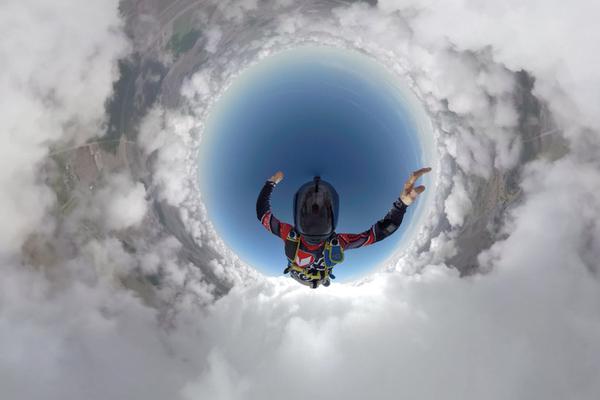Neil Armstrong,cerita lucah malaysia amoi Buzz Aldrin, and Michael Collins made their Apollo 11 trip to the moon and back in eight days.
But Artemis' maiden space voyage, which could begin as early as Aug. 29, will last more than a month longer. If all goes as planned, NASA's new Orion spacecraft won't return until Oct. 10.
Update on Aug. 29, 2022 at 1:45 p.m. ET: NASA scrubbed the Aug. 29 launchafter encountering a problem cooling one of the Space Launch System rocket's engines. As of Aug. 29, flight managers said they're still planning to attempt a launch at their next opportunity on Sept. 2. It will be livestreamed.
The $4.1 billion mission — the United States' first to the moon since 1972 — is a test flight, aimed at proving the 32-story rocket and Orion are safe for sending humans to the lunar surface on long expeditions. No one will be inside the capsule this time, save for three test dummies, but the flight's success or failure could determine the future of the program. NASA wants to use the moon as an astronaut training ground for an eventual mission to Mars.
During a news briefing on Monday, Bob Cabana, associate administrator for NASA, tried to manage public expectations. The team is taking a "lean forward" approach to the mission — meaning they plan to push the equipment to its limits, taking risks they wouldn't dare if people were onboard.
"We are stressing Orion beyond what it was actually designed for, in preparation for sending it to the moon with a crew," said Cabana, who is a former astronaut. "And we want to make sure that it works absolutely perfectly when we do that."
 Over six weeks, the new Orion spacecraft will test various lunar orbits. Credit: NASA / Kim Shiflett
Over six weeks, the new Orion spacecraft will test various lunar orbits. Credit: NASA / Kim Shiflett For the Artemis I moonshot, Orion will fly 1.3 million miles, including a swing of 40,000 miles past the moon, traveling the farthest any spacecraft for passengers has ever flown. Over those six weeks, the spacecraft will try out various orbits. When the capsule returns, it will splash down in the Pacific Ocean off the coast of San Diego, California.
"We are stressing Orion beyond what it was actually designed for, in preparation for sending it to the moon with a crew."
One of the main purposes of the flight is to see how Orion's heat shield stacks up against the scorching temperatures of reentry into Earth's atmosphere. Orion will come home faster and hotter than any spacecraft has before, traveling at 24,500 mph in 5,000 degrees Fahrenheit — about half the temperature of the sun's surface.
By comparison, NASA administrator Bill Nelson, who was an astronaut during the Space Shuttle era, said his descent was 25 Mach, or about 17,500 miles per hour.
 Orion will come home faster and hotter than any spacecraft has before, traveling at 24,500 mph in 5,000 degrees Fahrenheit — about half the temperature of the sun's surface. Credit: NASA
Orion will come home faster and hotter than any spacecraft has before, traveling at 24,500 mph in 5,000 degrees Fahrenheit — about half the temperature of the sun's surface. Credit: NASA This Tweet is currently unavailable. It might be loading or has been removed.
About a decade in the making, Artemis, named after Apollo's twin sister in Greek mythology, will be the first astronaut exploration program to survive a change in White House leadership in half a century. It differs from Apollo in that NASA doesn't just want to visit the moon, but stay, establishing a lunar-orbiting base, called the Gateway. The space race pressure is on, with China working on its own plans to send people to the moon.
But delays have pushed NASA's schedule further out into the future, with the first moonwalk, part of the Artemis III mission, not expected until at least 2025.
This Tweet is currently unavailable. It might be loading or has been removed.
The space agency hauled the Statue of Liberty-size rocket to its Cape Canaveral, Florida, pad two weeks ago and gave it the official "Go" for launch on August 22, setting the stage for a two-hour launch window beginning at 8:33 a.m. ET Aug. 29. If NASA needs to delay for any reason, they have backup launch dates on Sept. 2 and 5.
The gigantic Space Launch System rocket, more powerful than Apollo's Saturn V, will drive 8.8 million pounds of thrust behind the spacecraft, catapulting it to 100 mph in a matter of seconds.
After launching into space, Orion will drop its solid boosters and core stage, the tall orange sticklike tank that serves as the backbone of the rocket. As the spacecraft makes a low loop around the world, it will deploy its solar panels.
 The Artemis I uncrewed flight will travel 42 days in space. Credit: NASA
The Artemis I uncrewed flight will travel 42 days in space. Credit: NASA Want more science and tech news delivered straight to your inbox? Sign up for Mashable's Top Stories newslettertoday.
Meanwhile, a single-engine liquid hydrogen and oxygen-based system will give the spacecraft the big jolt it needs to escape Earth's orbit. That move, called a translunar injection, guides the ship to a precise target where the moon's gravity will reel it in.
As Orion continues on its journey, a service module provided by the European Space Agency will make occasional course corrections for the spacecraft. But the European system also will be responsible for a complicated punch into a distant lunar orbit.
The maneuver will come as Orion skims just 60 miles above the lunar surface. NASA expects to capture some impressive Earth-rising photos.
"It's gonna be spectacular," said Rick LaBrode, lead Artemis flight director. "When that burn actually executes, Orion will be on the other side of the moon, and we won't have [communication] with it. So we'll be praying and holding our breath but confident that all will go well."
"It's gonna be spectacular."
After the close approach, Orion will use the moon's gravity to swing out and make 1.5 laps around the moon over the course of two weeks. At its farthest point, it'll be 280,000 miles from Earth, surpassing Apollo 13's record of just under 249,000.
On its way back, the spacecraft will get another gravity boost from the moon during a second low flyby, firing engines at just the right moment to get back on a trajectory to Earth.
This one is the most critical burn of the entire mission.
"If something happens with that one and we don't execute it, then it's a loss of the Orion capsule," LaBrode said.
 No one will be inside the capsule this time, save for three test dummies, but the flight's success or failure could determine the future of the Artemis program. Credit: NASA / Radislav Sinyak
No one will be inside the capsule this time, save for three test dummies, but the flight's success or failure could determine the future of the Artemis program. Credit: NASA / Radislav Sinyak The mission will conclude with a test of Orion's ability to come home safely. The spacecraft will hit Earth's atmosphere at 32 times the speed of sound. Due to the extreme heating of the capsule, NASA will have two more communication blackouts with the capsule during that period.
A pair of drogue parachutes will pop out, followed by three pilot parachutes. By the time the spacecraft drops into the ocean for the Navy to recover, it should be going less than 20 mph.
Artemis II and III, the missions that will carry humans around and to the moon, depend on the success of this inaugural mission. For NASA chief astronaut Reid Wiseman, Artemis I is the first step toward exploring another planet.
"Our sights are not set on the moon," he said. "Our sights are set clearly on Mars."
 10 best DLCs 2023, ranked: No. 1 left me emotionally damaged, but it's worth it
10 best DLCs 2023, ranked: No. 1 left me emotionally damaged, but it's worth it
 The unexpected catharsis of watching COVID
The unexpected catharsis of watching COVID
 Uber buys Drizly for $1.1 billion, adding booze delivery to Uber Eats
Uber buys Drizly for $1.1 billion, adding booze delivery to Uber Eats
 Apple fixes Bluetooth problems in new macOS Big Sur update
Apple fixes Bluetooth problems in new macOS Big Sur update
 BetBoom Team и Virtus.pro заняли второе и третье места на PUBG EMEA Championship: 2025 Spring
BetBoom Team и Virtus.pro заняли второе и третье места на PUBG EMEA Championship: 2025 Spring
 Helpful apps for neurodiverse kids and students
Helpful apps for neurodiverse kids and students
 Instagram now lets you recover deleted posts
Instagram now lets you recover deleted posts
 Vivid images show the powerful cyclone deluging California
Vivid images show the powerful cyclone deluging California
 Trump complains about flushing, becomes the butt of Twitter jokes
Trump complains about flushing, becomes the butt of Twitter jokes
 Tesla's Model S and X revamp says RIP to the traditional steering wheel
Tesla's Model S and X revamp says RIP to the traditional steering wheel
 Best Stanley deal: Get Stanley products up to 25% off at Amazon
Best Stanley deal: Get Stanley products up to 25% off at Amazon
 Google disables Great Suspender extension, says it 'contains malware'
Google disables Great Suspender extension, says it 'contains malware'
 The 8 best investing app alternatives to Robinhood
The 8 best investing app alternatives to Robinhood
 Parler has reportedly terminated CEO John Matze
Parler has reportedly terminated CEO John Matze
 38 TV shows we can't wait to see in 2024
38 TV shows we can't wait to see in 2024
 How to shop online in the least wasteful ways possible
How to shop online in the least wasteful ways possible
 Huawei to launch new foldable phone in February
Huawei to launch new foldable phone in February
 Discord bans r/WallStreetBets server for 'hateful and discriminatory content'
Discord bans r/WallStreetBets server for 'hateful and discriminatory content'
 PARADOX обыграла КОРМ2 в третьем дивизионе BetBoom Битва Чемпионов 2025
PARADOX обыграла КОРМ2 в третьем дивизионе BetBoom Битва Чемпионов 2025
 Check out Black History Month events online
Check out Black History Month events online
Ariana Grande and Pete Davidson are uh, casually dating, I guessThe fascinating thing Americans were Googling during the royal weddingEmma Watson sends moving message to people voting in Ireland’s abortion referendumJared Kushner's comb over: An investigationDon't panic about a possible correlation between STDs and dating appsJared Kushner's comb over: An investigationNicki Minaj and Eminem say they're dating, but people think they're trolling hardBest Royal Wedding memes from Prince Harry and Meghan Markle's weddingThe mysterious case of Hilary Duff and the insufferable neighbor: An Instagram storyMeghan Markle's official royal biography mentions menstrual hygiene and female empowerment 'Ace' is the first book of its kind. Here’s why anyone, asexual or not, should read it. Little Miss Flint shares her feelings about 2020 with a pointed Trump pic Apple's new Fitness+ feature might make Peloton sweat Essential workers who pay more taxes than Trump are tweeting their anger Artist adds Al Green's face to Walgreens sign Twitter flags top GOP rep Steve Scalise's tweet as 'manipulated media' LG unveils air purifier face mask Buy 1 Get 50% 1 for dog Halloween costumes and apparel at Petco How to use Triller, the popular alternative to TikTok An inside look at how Biden's campaign is winning the viral merch game
0.2728s , 12140.921875 kb
Copyright © 2025 Powered by 【cerita lucah malaysia amoi】Enter to watch online.NASA's Artemis spacecraft will whip around the moon over 42 days,